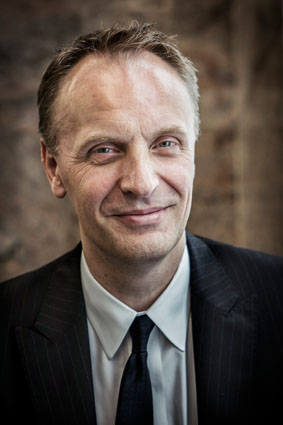
Editor-In-Chief of The Lancet.
Richard Horton is Editor-in-Chief of The Lancet. He was born in London and is half Norwegian. He qualified in physiology and medicine with honours from the University of Birmingham in 1986. He joined The Lancet in 1990, moving to New York as North American Editor in 1993.
Richard was the first President of the World Association of Medical Editors and he is a Past-President of the US Council of Science Editors. He is an honorary professor at the London School of Hygiene & Tropical Medicine, University College London, and the University of Oslo. He has received honorary doctorates in medicine from the University of Birmingham, UK, and the Universities of Gothenburg and Umea in Sweden. In 2016, he was appointed to the High-Level Working Group for the Health and Human Rights of Women, Children, and Adolescents. In 2016, he also chaired the Expert Group for the High Level Commission on Health Employment and Economic Growth, convened by Presidents Hollande of France and Zuma of South Africa. From 2011 to 2015, he was co-chair of the UN’s independent Expert Review Group on Information and Accountability for Women’s and Children’s Health. Richard received the Edinburgh Medal in 2007 and the Dean’s Medal from Johns Hopkins School of Public Health in 2009. In 2016, he was awarded an Honorary Fellowship by the British Pharmacological Society. He has written two reports for the Royal College of Physicians of London: Doctors in Society (2005) and Innovating for Health (2009). He wrote Health Wars (2003) about contemporary issues in medicine and health, and he has written for The New York Review of Books and the TLS.
He has a strong interest in global health and medicine’s contribution to our wider culture. He now works to develop the idea of planetary health – the health of human civilizations and the ecosystems on which they depend. In 2011, he was elected a Foreign Associate of the US Institute of Medicine. In 2015, he received the Friendship Award from the Government of China. In 2016, he received the Andrija Stamper medal from the Association of Schools of Public Health in the European region and in 2017, he was awarded the Edwin Chadwick Medal for outstanding contributions to the advancement of public health.
